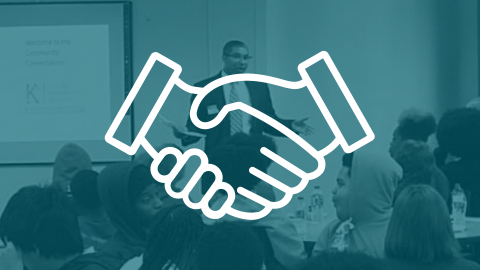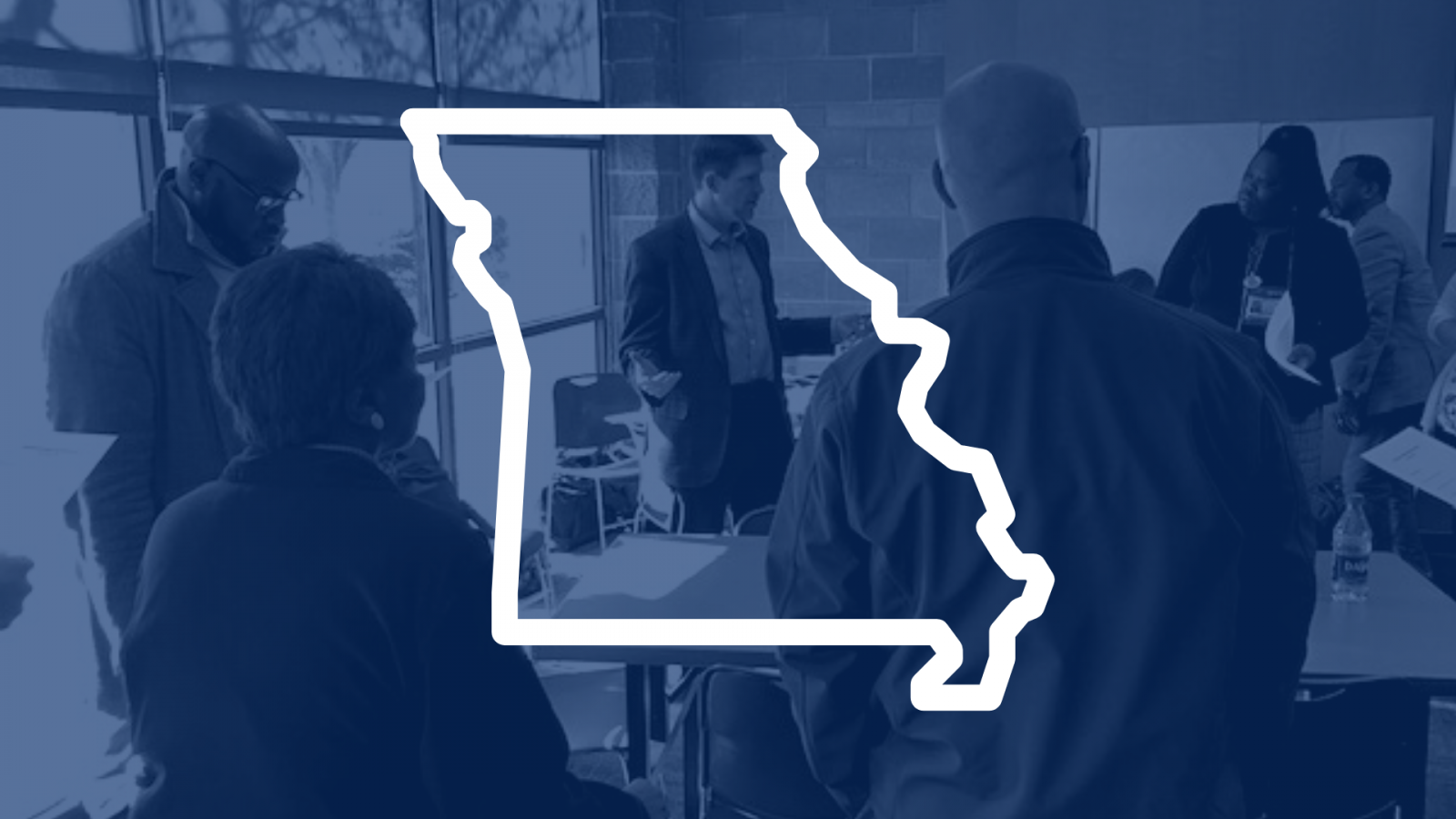
Kansas City, Missouri's Approach to Community Engagement
The Kansas City, Missouri Municipal Court (KCMC) served as the lead entity managing the Kansas City team’s project. The Municipal Court Administrator’s office partnered with the court’s presiding judge, the City Prosecutor, Legal Aid (which provides indigent defense), and a member of the defense bar to form a project steering committee. Community stakeholder groups participated on the steering committee to provide outside perspectives and insight, assist with project outreach, and serve as facilitators for the court’s engagement sessions.
Goals
- Collect and examine data about community perceptions of the municipal court and its operations.
- Examine court user perceptions of fairness, access, and trust in the municipal court.
- Engage community members to discuss the municipal court’s 40% failure to appear rate and barriers to access that contribute to people failing to appear for court hearings.
Recruitment
The Kansas City team used a combination of purposive and convenience sampling to identify and recruit community members to multiple engagement events about access, fairness, and trust issues with the municipal court.
Engagement Overview
The Kansas City team and their partners used a combination of educational presentations and exercises using real-time voting technology, and small and large group discussion activities for their public engagement project. The team sponsored three engagement sessions for the general community – each one was about three hours long and convened at well-known community gathering points in Kansas City. Additionally, the team partnered with Kansas City Public Schools to convene a fourth session with high school youth interested in justice system issues.
Engagement Activities
Prior to engaging the public directly, the Kansas City team and its partners participated in a training about unconscious bias and reviewed results from their KCMC court user survey. These pre-engagement activities helped prepare the team with information about court user concerns, and awareness of unconscious racial bias in the justice system and in general. The team used a similar format to engage both the general community and youth groups, though the youth engagement differed slightly from the adult community sessions in content.
Key Findings
The Kansas City team discovered a number of important findings as a result of its engagements:
At the three adult engagement sessions, the Kansas City team asked participants during the real-time voting exercises about their levels of trust or distrust in the Kansas City Municipal Court. Twenty-four percent of engagement participants expressed distrust of the Kansas City Municipal Court, 34% trusted the court, and 42% were neutral towards the court on this question.
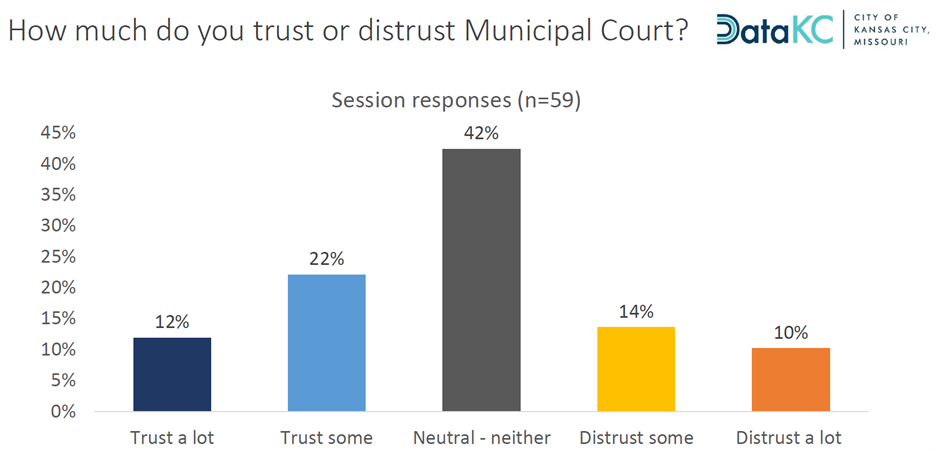
At the three adult engagement sessions, the Kansas City team asked participants during the real-time voting exercises how fairly or unfairly the Kansas City Municipal Court treats people. Twenty-nine percent of engagement participants believed the Kansas City Municipal Court treated people unfairly, 22% believed the court treated people fairly, and 51% were neutral towards the court on this question.
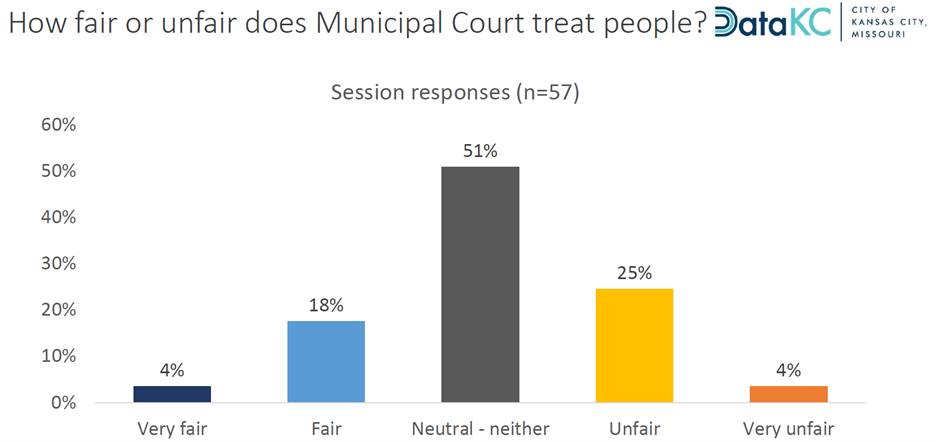
At the three adult engagement sessions, the Kansas City team asked participants during the real-time voting exercises about issues of fairness and equity concerning the Kansas City Municipal Court treats people. Seventy-four percent of engagement participants were highly concerned about fairness and equity issues facing poor people. Sixty-two percent of adult engagement participants were highly concerned about fairness and equity issues facing black/brown people.
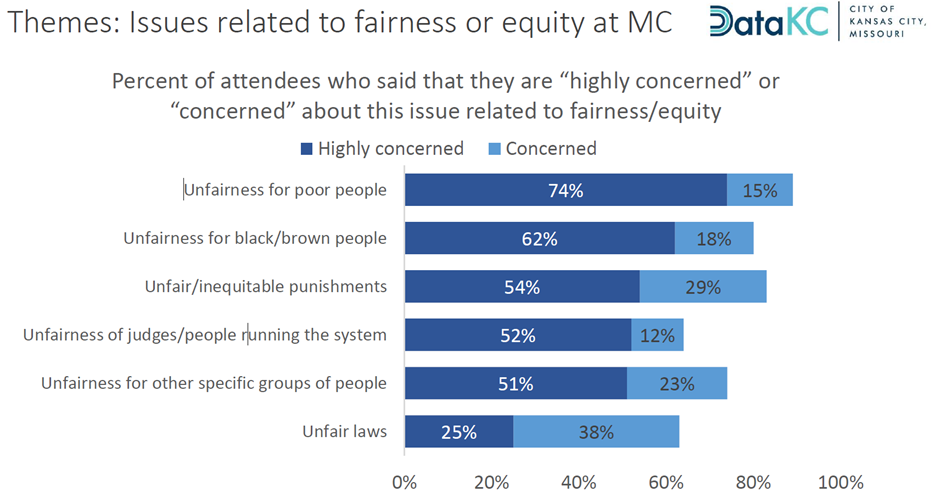
At the three adult engagement sessions, the Kansas City team asked participants during the real-time voting exercises why they thought people do not appear at the Kansas City Municipal Court. Engagement participants felt that highly significant issues discouraging people from appearing at court included fear of legal consequences (72%), inability to pay (69%), and mental health issues (60%).
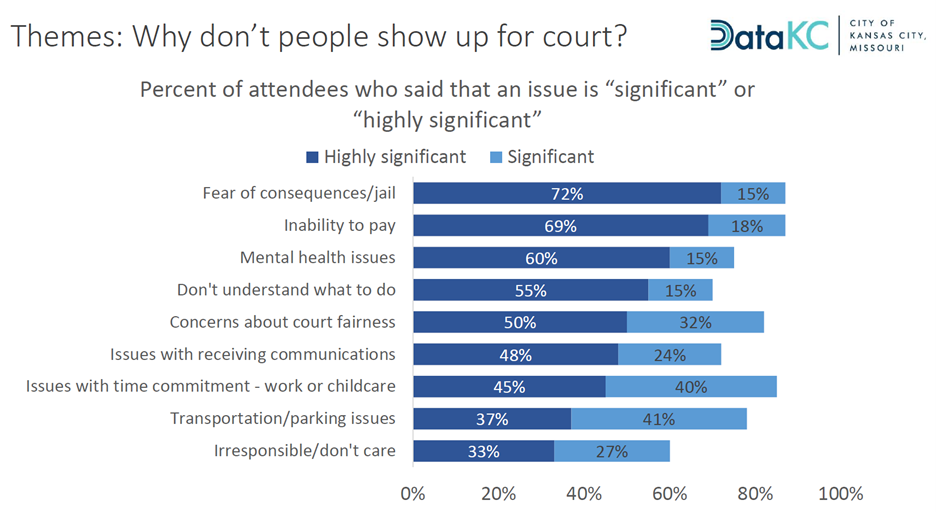
Evaluation
The Kansas City team administered pre- and post-engagement surveys with participants at all four engagement sessions. A total of 115 individuals participated in the four sessions (57 adults, 49 youth, 9 stakeholders). The team provided $25 gift cards to all participants who returned pre- and post-surveys at the completion of each engagement. Survey content included items on perceptions and knowledge of the KCMC and its functions, perceptions of trust in the court, and opinions about the engagement process.
Among all four engagement sessions, the average rating for how helpful participants believed the engagement discussions were for making progress on problems was 3.74 on a scale of 1-5, in which 1 = not at all, 2 = slightly, 3 = somewhat, 4 = very, and 5 = extremely, helpful.
Thus, on average, participants felt the helpfulness of the engagement to making progress on problems was between somewhat and very helpful.
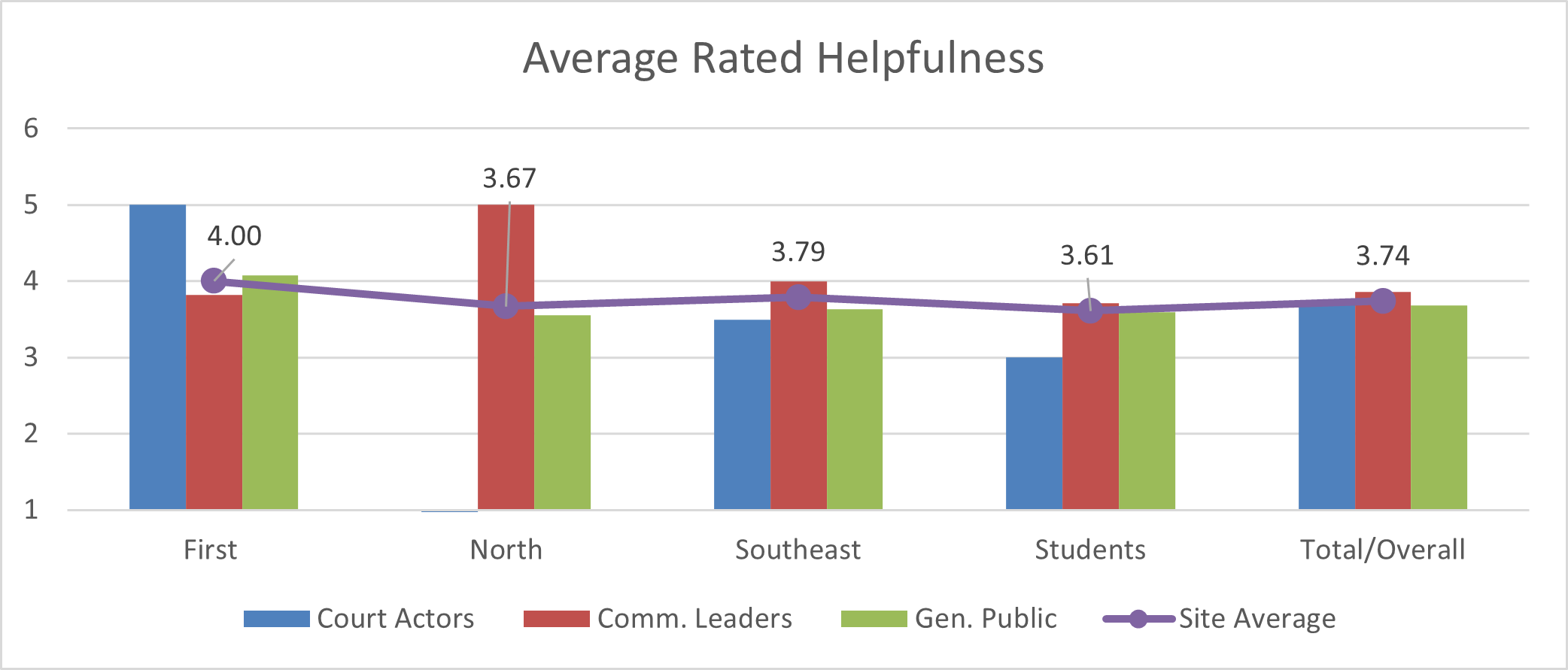
Among all four engagement sessions, the average rating for how important participants believed the engagement discussion topics were was 4.07 on a scale of 1-5, in which 1 = not at all, 2 = slightly, 3 = somewhat, 4 = very, and 5 = extremely, important.
Thus, on average, participants felt the importance of the engagement was between very and extremely important.
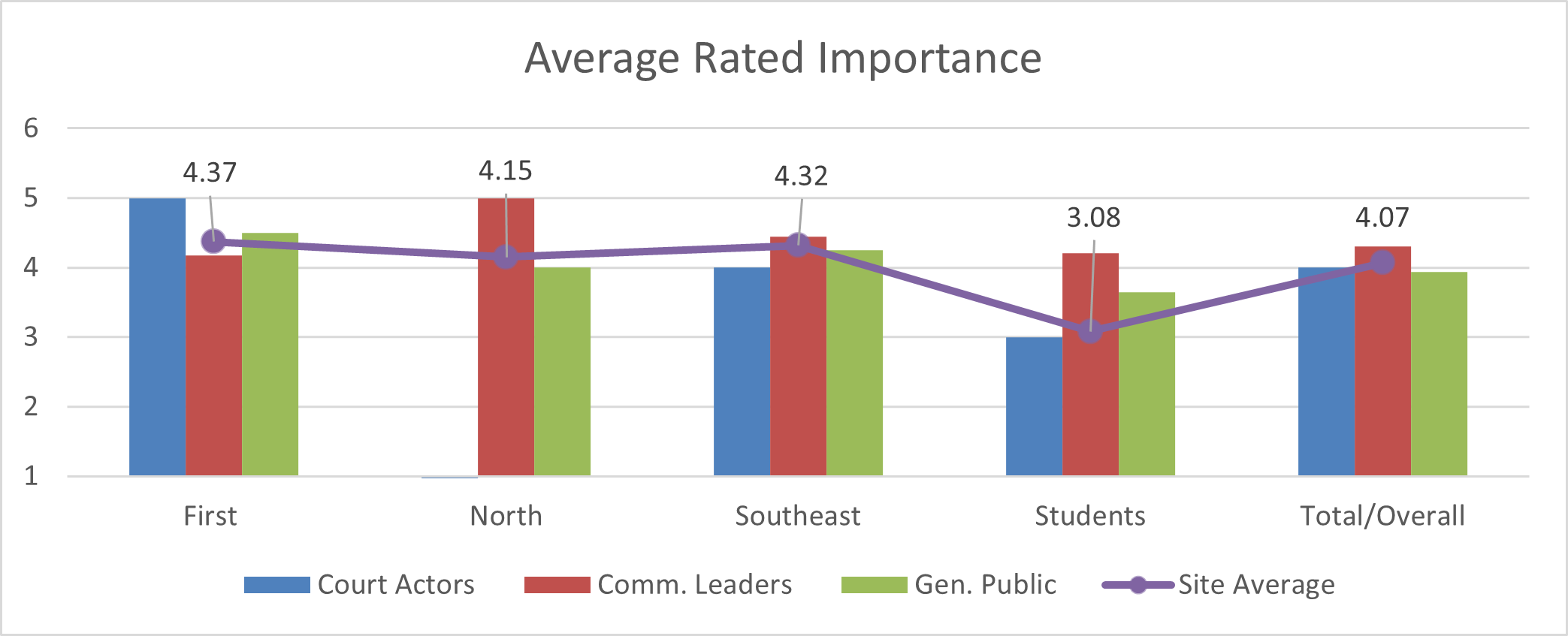
Across all four engagement sessions, average ratings increased from pre to post of participants’ perceptions of the KCMC being fair, being caring, having integrity, being part of the community, and perceptions of how respectful and courteous court judges (J) and staff (S) were to the public.
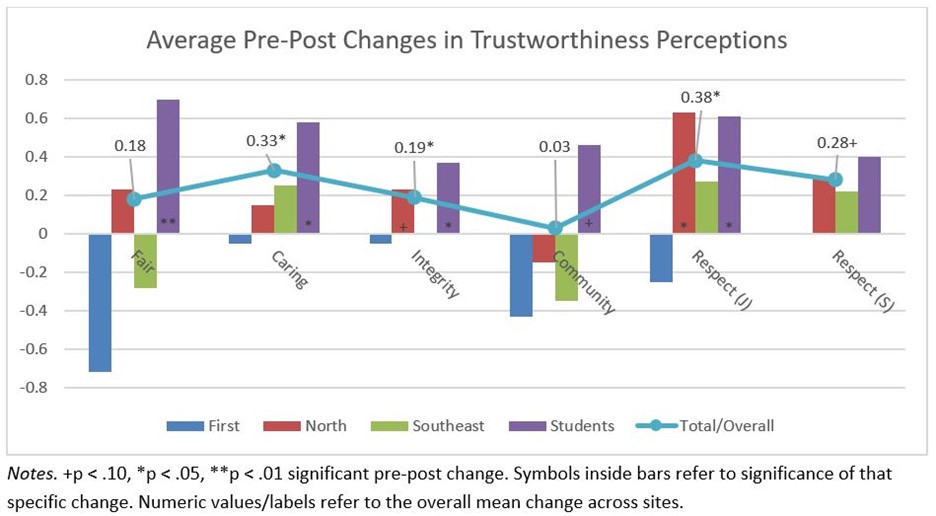
Among all four engagement sessions, the average rating for satisfaction with the engagement sessions was 4.1 on a scale of 1-5, in which 1 = very dissatisfied, 2 = dissatisfied, 3 = neither satisfied nor dissatisfied, 4 = satisfied, and 5 = very satisfied.
Thus, on average, participant satisfaction with the engagement experience was between satisfied and very satisfied.
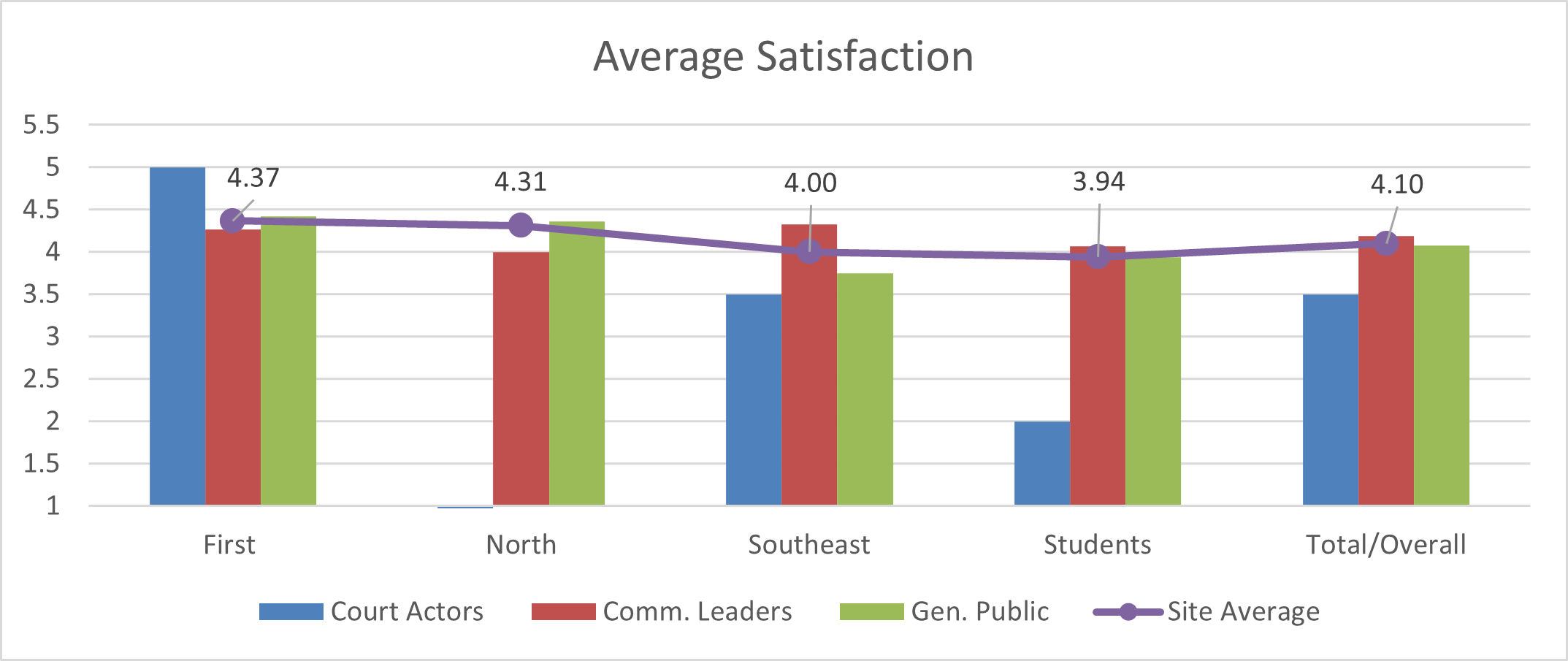
Sustainability
The Kansas City Team identified a number of ideas for sustaining their efforts going forward. These ideas included:
- Issue a formal report or summary about the engagement project and next steps
- Convene defendant/inmate engagement sessions
- Convene additional youth sessions
- Convene a court resource day for the community
- Consider having court actors (e.g., judges, court personnel, administrators) attend neighborhood association meetings and other community events
- Expand education about the court system to a community academy about law enforcement and the judicial process
- Partner with 311 to develop further educational efforts about the court
Lessons Learned
- Consider how judges can participate in discussions without stifling conversation
- Provide more background information about the court and its services to engagement participants
- Generate more press coverage about engagement opportunities
- Host engagement sessions near main public bus routes
- Do not hold a session right after a holiday
- Offer better technology for note takers
- Work with already formed community groups to engage the public
- Consider evening engagement sessions
- Consider providing child care
- Convene engagement sessions in more and additional parts of the community
